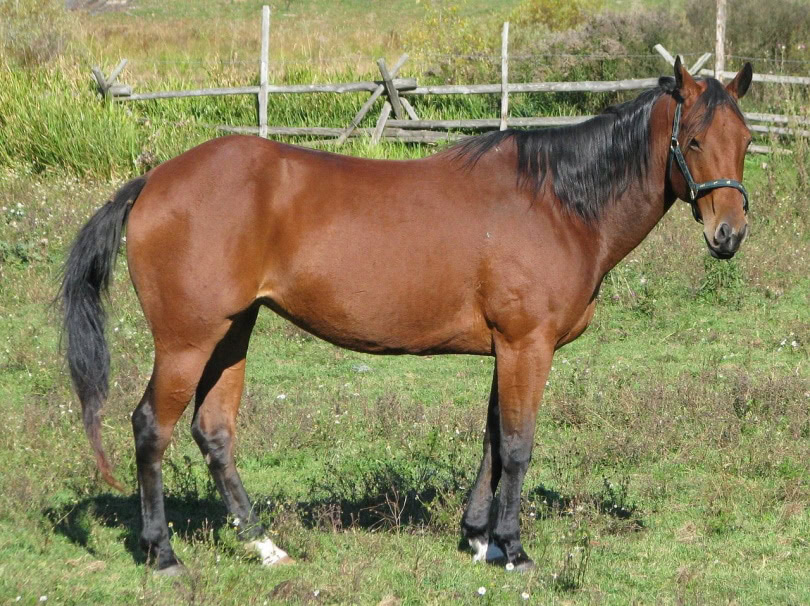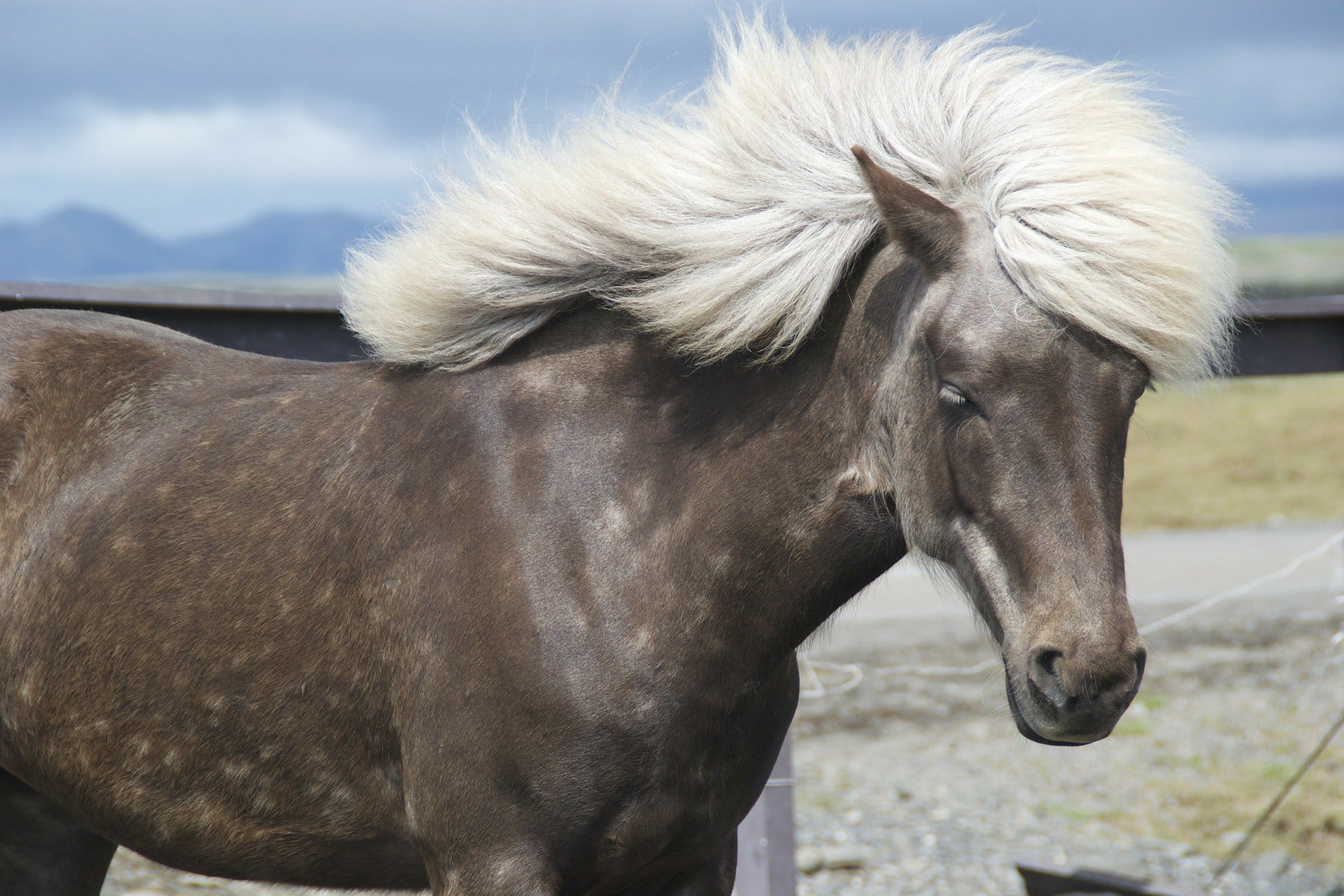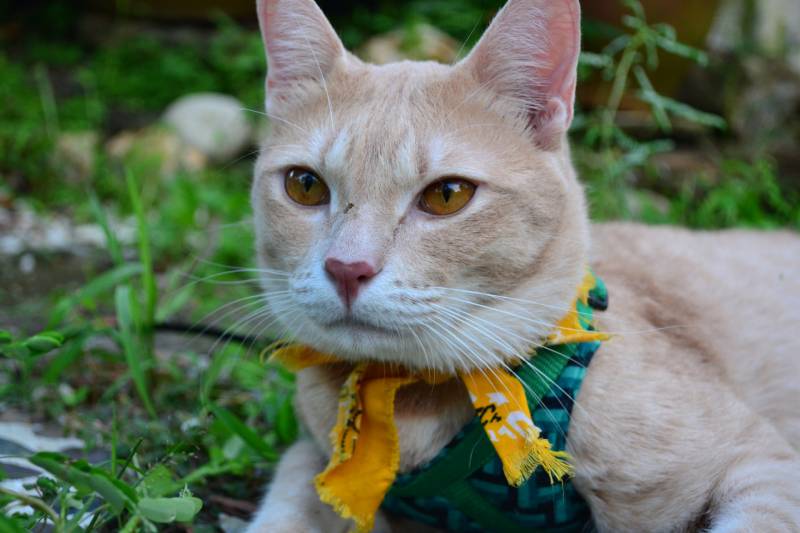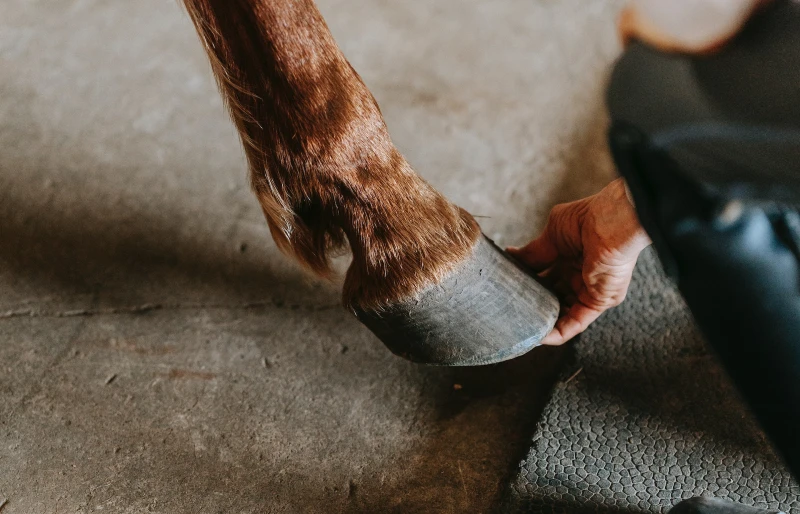Click to Skip Ahead
Most people don’t think too much about their horse’s poop, but it’s actually quite important! Not only should you pay attention to how often your horse poops, but you should also know what healthy poop looks like. Horses poop frequently: The average horse produces between 30 and 50 pounds of manure every day. That’s a large amount of poop, and your horse’s droppings provide a great deal of information about them. Read on for everything that you need to know about horse poop!

Everything That You Need to Know About Horse Poop Production
Horse owners are quite familiar with the daily chore of cleaning up poop. But have you ever wondered just how much poop a horse produces in a day? What exactly goes into making equine feces, anyway?
On average, a healthy horse produces between 30 and 40 pounds of manure per day. However, factors like diet, exercise level, and health status affect this amount, so some horses can produce up to 50 pounds of manure in a day. Those that are active or on high-fiber diets will produce more manure than those with low-fiber intakes or that are sedentary.
What Is in Horse Manure?
Horse manure, or waste, consists of three main components: urine, solid waste, and bedding material. Urine accounts for the largest percentage of waste volume, approximately 65–85%. Solid waste is next at 10–30%, and bedding material is 5–15%.
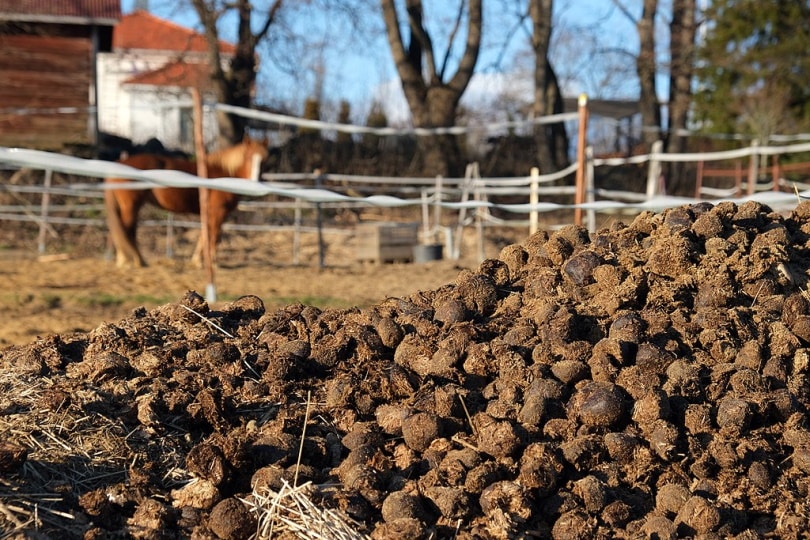
Manure Production 101
Poop is produced by a horse’s digestive system. More ingested food produces more poop. Saliva mixes with feed during chewing. A horse on hay or pasture produces twice the amount of saliva than when eating grain or pelleted feed. This extra saliva provides a buffer against stomach acid and is the reason that horses on high-forage diets have fewer incidences of gastric ulcers.
Once a horse swallows their food, it enters the stomach and spends about 15 minutes there. Not much happens inside a horse’s stomach besides the feed being liquified and then passed into the small intestine.
Simple sugars, fat-soluble vitamins (A, D, E, and K), proteins, and fats are absorbed in the small intestine. The process takes between 1 and 3 hours, then whatever is left of the feed moves to the large intestine. In the large intestine, fiber is fermented to produce fatty acids, an important energy source. Any remaining nutrients are extracted, water is absorbed, and fecal balls form to pass out of the rectum.
It takes between 36 and 72 hours in total for horse feed to completely transform from a bite of food into manure.
The Three C’s
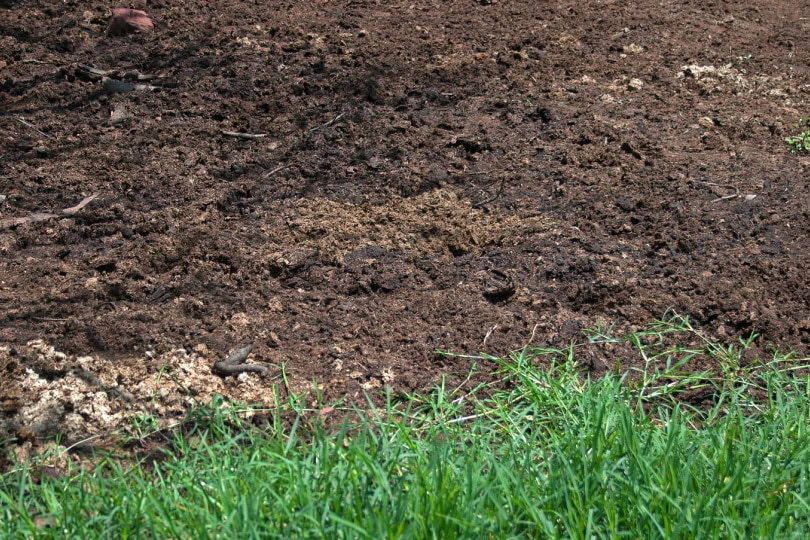
Horse poop can reveal much about a horse’s health. By paying attention to the three C’s—color, consistency, and control—you can get a good idea of your horse’s overall health.
Color
Equine manure should be deep brown in color, similar to that of chocolate. If it’s black, there could be blood in the stool, which indicates a gastrointestinal issue. Red can also indicate blood, but it can also happen from eating too many red apples! If their manure is white or pale in color, it may mean your horse is lacking nutrients or experiencing dehydration.
Consistency
Healthy horse manure should be well-formed, not runny or soft. If it is, this can indicate diarrhea, which can lead to dehydration and other health problems. But if the manure is too hard and dry, it could mean constipation, which is also bad. The ideal consistency is somewhere in the middle: not too hard and not too soft.
Control
Your horse should have some control over when and where they poop. If they are straining to go, this is a sign of constipation or intestinal blockage. It takes about 15 seconds to pass one manure pail. Your horse will stop, raise their tail, and push out the poop. Low poop production means your horse is either eating less because they don’t feel well or something is preventing the poop from passing. If you suspect that your horse can’t pass manure, contact your vet immediately, as it is a medical emergency.
A healthy horse should make between six and 10 manure piles every day. If they are very young or a stallion, they will pass more. Stallions pass manure to mark their territory. Some geldings retain this behavior even after castration. You’ll notice if this is the reason for extra stool because your horse will poop on top of another horse’s poop. This is normal behavior and nothing to worry about.
Red Flags in Horse Manure
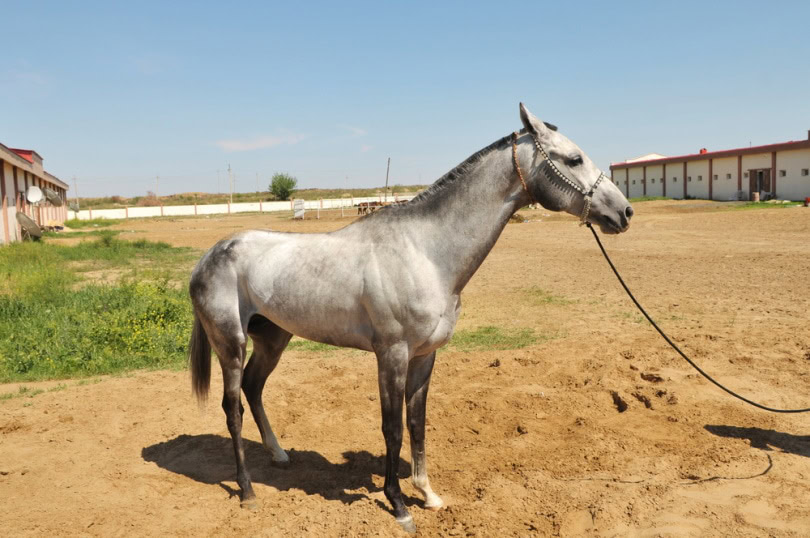
While it may seem like a gross task, examining your horse’s poop can help you detect early warning signs that something is wrong with your horse and enables you to intervene before a bigger problem develops.
- Excessive straining — If your horse is straining to poop, this is a sign of a medical emergency, like impaction or colic.
- Diarrhea — This signals that something is wrong with your horse’s digestive system. Diarrhea can be a sign of dehydration, so make sure your horse is drinking enough water. It can also be an indication that your horse is suffering from a bacterial or viral infection.
- Blood in the manure — This is always a cause for concern, and your horse should be examined by a veterinarian as soon as possible. Blood in manure can be caused by many different things, from infections to gastric ulcers.
- White, chalky poop — Pale-colored, chalky stools are a sign of liver disease.
- Hard, dry poop — Hard, dry stools are caused by dehydration, but without intervention, they often lead to impaction colic.
- Undigested food in manure — While it’s not supported by science, many horsepeople believe that undigested food in the manure is a sign that your horse isn’t chewing well. Sometimes, this is a result of poor-quality feed, but it can also indicate that it’s time to float the horse’s teeth.
- Worms — If you can actually see the worms in your horse’s manure, it means they have a high parasite load. It’s time for a dewormer.
Don’t hesitate to contact your vet for advice if you notice any of these horse poop red flags.

Summary
Horses can produce up to 50 pounds of poop every day. Keeping an eye on your horse’s manure gives you a strong indication of their overall health. It can also alert you that something is wrong before it becomes an emergency. Watch out for the red flags, and contact your vet immediately if there is a cause for concern.
Related Reads:
Featured Image Credit: Bernell MacDonald, Pixabay
